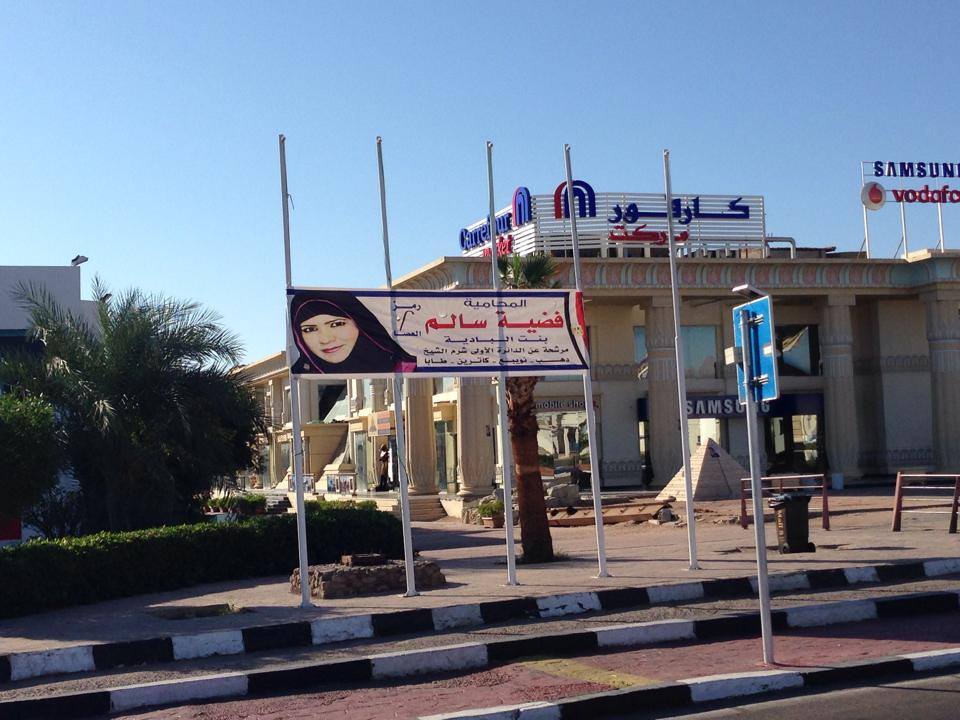CAIRO: The screening of Mai Iskander’s “Garbage Dreams”, a documentary on Cairo’s trash collectors known as zabbaleen, at Darb 1718 this Monday was an opportunity not only to shed light on the deteriorating situation of the zabbaleen, but also on their efforts to modernize Cairo’s recycling system and change people’s attitude towards trash.
The 60,000 garbage collectors and recyclers in the biggest trash recycling industry in the world collect about 4,500 tons of waste daily, about a third of the total 13,000 tons produced every day by the estimated 18-22 million Cairenes.
Eighty percent of the collected garbage is recycled in Cairo where the zabbaleen live, compared to an average 30 percent in European and American cities. Organic garbage is transformed into compost and fertilizers; non-organic food is transformed into raw material through shredding and compressing and exported afterwards. China, France and Finland are the most important buyers. The remaining non-recycled 20 percent is mainly tetra pack, chips packages and the like, as well as plastic bags that are polluted through organic trash.
But the zabbaleen, not officially recognized as holding formal jobs by the Egyptian Government, have been facing difficult times since 2003, when Cairo signed contracts worth $50 million a year to outsource the garbage collection in the city to international companies.
“The Egyptian government does not recognize our work. They sold out Cairo’s trash to multinationals without consulting or informing the zabbaleen,” Ezzat Naem Guindy, son of a garbage collector and founder of the Spirit of Youth Association for Environmental Service, said after the film screening.
But the zabbaleen are trying to legalize their profession, still exercised illegally by 90 percent of them, with the aim to be integrated into the formal waste management sector by 2015 at latest when the contracts with the multinationals will expire. They are hoping to get a legal market share in the garbage collecting sector.
“We want to cooperate with the multi-nationals,” Guindy said, proposing a market share that would leave the organic garbage, which accounts for about 40-50 percent of the daily quota of collected garbage, to the international companies and the non-organic trash to the zabbaleen.
“The international companies are only required to recycle 20 percent of the collected trash. They are compressing the garbage on a minimal size and so are destroying a lot of valuable material. But they get paid, whether or not they recycle,” Guindy explained.
After the culling of the zabbaleen’s pigs in 2009 in a measure erroneously believed to stem the swine flu pandemic, the zabbaleen were not only deprived of an important source of income — a family gained approximately LE 20,000 per year through selling of their pigs — but were no longer able to recycle their organic garbage.
But their bid to reach out to international support paid off when The Bill Gates Foundation granted them $1 million in 2009 to support the recycling school in one of the zabbaleen’s neighborhoods. Guindy was also named Arab World Social Innovator in 2010 and “Garbage Dreams” won 23 international film awards.
Hoping that this international appreciation will influence Egyptian officials and decision-makers, the zabbaleen have been working hard to promote the environmentally friendly aspect of their work.
After the film screening, a new campaign to introduce source segregation in Cairo was unveiled. The objective of the initiative is to encourage separating organic and non-organic garbage at the source (in households, kitchens, companies), which would result in the recycling of up to 95 percent of total waste.
Their source segregation campaign involves visiting households and has already shown some results. In wealthy areas, only 50 percent of the households were receptive to the idea of separating waste, whereas in poorer neighborhoods around 85 percent started to apply waste separation, according to Guindy.
Unfortunately, the international companies have yet to join the campaign, counteracting the efforts of the zabbaleen and of the residents by throwing the separated garbage back together as they collect it.
At the end of the discussion, Guindy urged attendees to support the source separation campaign not only for the sake of the environment, but also because it is instrumental in securing the future and livelihood of the zabbaleen.
“A lot of residents have already complained [from the international companies],” said Guindy. “They want their zabbaleen back!”
For more information, please contact Ezzat Naem Guindy at: ezzatnaem[at]hotmail[dot]com.



